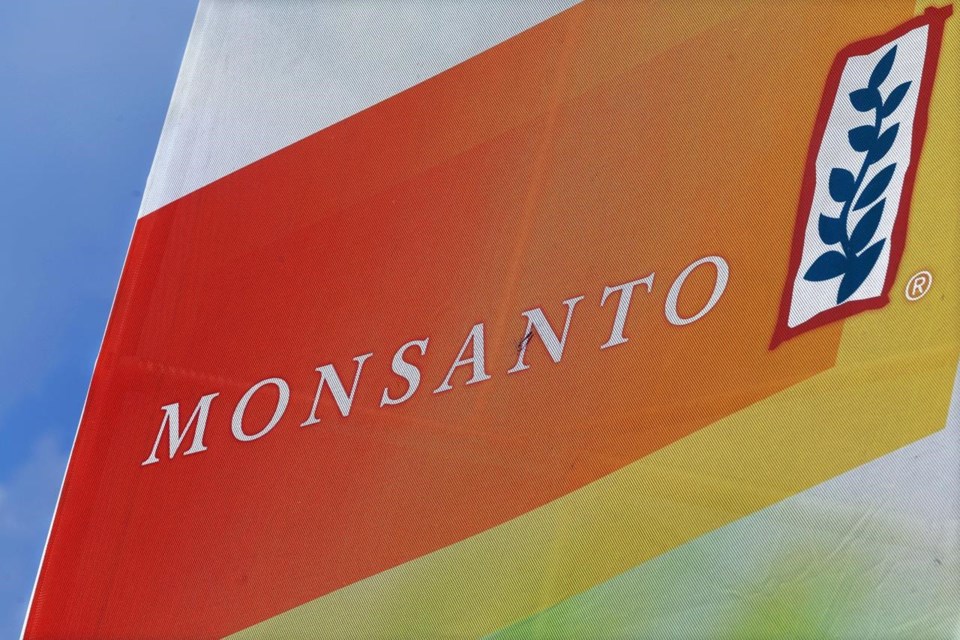PORTLAND, Ore. (AP) — Bayer, the German pharmaceutical and biotechnology company, will pay Oregon $698 million to end a lawsuit over PCB pollution associated with products made by Monsanto, the agriculture giant it now owns, the state's attorney general announced Thursday.
The move makes Oregon the latest U.S. state to receive millions of dollars in damages from the company for pollution allegedly caused by the chemicals.
It's the largest environmental damage recovery in Oregon's history and “magnitudes larger” than any other state settlement over PCB contamination by Monsanto, Attorney General Ellen Rosenblum said. She described it as “vitally important” to the state's land, air, water, wildlife and residents.
Rosenblum said she was excited to bring a settlement of such size to the state and “begin to resolve this terrible problem that we have."
“When we start digging and understanding what is in our land what is in our water, it can really bring tears to your eyes. So let’s get this cleaned up so that our kids and our grandkids will not have tears in their eyes," she added, speaking at at a news conference.
Bayer said in a statement that the settlement over “legacy Monsanto PCB products” fully resolves all Oregon’s claims and releases the company from any future liability. It said the Oregon agreement contains no admission of liability or wrongdoing by the company.
“The settlement terms reflect the unique challenges and trial procedures in this Oregon venue even though Monsanto voluntarily ceased production of PCBs in 1977 and never manufactured, used or disposed of PCBs in Oregon,” it said.
The settlement stems from a filed by Oregon against Monsanto in 2018, claiming the company's products polluted the state until PCBs were banned in the 1970s. The case went to trial in May. A jury was selected and initial hearings were held, but the case was settled once the trial was underway.
PCBs, or polychlorinated biphenyls, were used in many industrial and commercial applications — including paint, coolants, sealants and hydraulic fluids. They still contaminate Oregon’s landfills and riverbeds and show up in fish and wildlife. Monsanto, which was based in Missouri, produced them from 1935 until 1977, two years before they were banned by Congress.
Oregon is the latest state to reach a settlement over PCB pollution associated with Monsanto products. Bayer, which acquired Monsanto in 2018 for over $60 billion, has also reached agreements totaling more than $275 million to resolve similar lawsuits with the attorneys general of Washington state, New Mexico, New Hampshire, Ohio and the District of Columbia .
Oregon’s $698 million settlement is the largest by far — more than sevenfold the sum of the the next largest settlement of $95 million reached with in 2020. Washington in 2016 became the first state to file a lawsuit against Monsanto over its PCBs.
Numerous cities have also sued Monsanto over PCB contamination.
In Oregon, more than two dozen rivers and streams have tested positive for PCB contamination, and fish and wildlife in more than 40 watersheds have also shown signs of pollution, according to court documents.
Portland’s harbor sustained the most pollution because it was lined for a century with businesses that relied heavily on PCBs for manufacturing, metal recycling, fuel storage, railways and other industrial uses.
PCBs have been shown to cause a variety of adverse health effects, according to the . They can cause cancer in animals and affect their immune, reproductive and nervous systems. The agency has also found that they are probable carcinogens for humans.
A variety of fish species in Oregon are vulnerable because the PCBs accumulate in their fatty tissues. When seals, eagles, osprey, orca whales and humans eat those fish, that contamination is passed on, the lawsuit alleged.
In some cases, dead orca whales that washed up onshore have been treated as hazardous waste, according to the lawsuit.
The settlement money will go toward environmental remediation projects across the state, including natural resource damage assessment or restoration, air and water quality improvements, contaminated site cleanups and wildlife habitat protections, according to the lawsuit's .
The Oregon Department of Justice said it will work with the Legislature, the governor, and state agencies to decide how to allocate the funds.
In a separate settlement involving PCB litigation, Bayer has agreed to pay $650 million to about 2,500 local governments, , which said those agreements don't contain admission of wrongdoing or liability.
Monsanto Co. is an indirect wholly owned subsidiary of BCS US Holding, LLC, which is an indirect subsidiary of Bayer Corp., a wholly owned indirect subsidiary of Bayer AG, as outlined by the suit's consent judgment.
Claire Rush, The Associated Press



